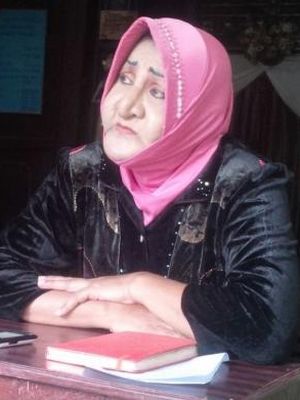Transgender Islamic School in Yogyakarta Gears for Ramadan Amid Covid
"40 of our trans students will attend these courses, which start from communal fastbreaking to a group tadarus session, where we recite suras or prayers from the Al-Qur'an."

An inclusive event with other faiths
Later they and their peers from other religions will work with transgender religious teachers from other faiths.
“The Sunday sessions will involve 30 elderly transgender Muslim and Christian teachers," Shinta said."The Christian instructors come from the Duta Wacana Christian University."
A number of university students who work with the pesantren on field research will also participate as observers, much like their predecessors in previous years.
The Al-Fatah pesantren said it helped foster solidarity among transgender people and other marginalized segments of society in Yogyakarta ever year.
Also read: Jokowi Inaugurates Indonesia's Yogyakarta-Solo Commuter Line
"Yogyakarta's trans population numbered in the hundreds, to say the least," said Shinta, who is a recipient of a human rights award from the Ireland-based NGO Front Line Defenders for her work on behalf of Yogyakarta's transgender community.
"They work in various fields ranging from salons to restaurants. A number might even engage in prostitution."
Of the pesantren's 40 students, at least 10 are known to board at the school. The students are allowed to dress as men or women, depending which gender they identify with.
(Writer: Yogyakarta Contributor, Markus Yuwono | Editor: Khairina)
Source:
Simak breaking news dan berita pilihan kami langsung di ponselmu. Pilih saluran andalanmu akses berita Kompas.com WhatsApp Channel : https://www.whatsapp.com/channel/0029VaFPbedBPzjZrk13HO3D. Pastikan kamu sudah install aplikasi WhatsApp ya.

































